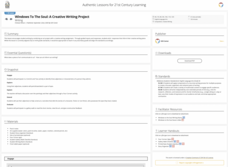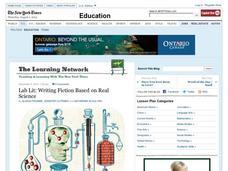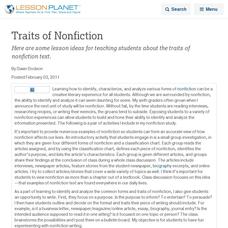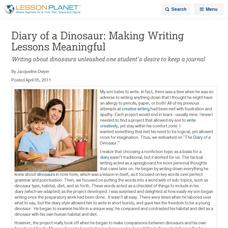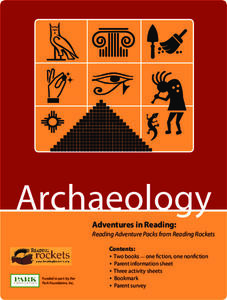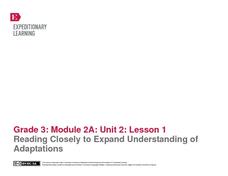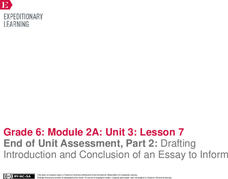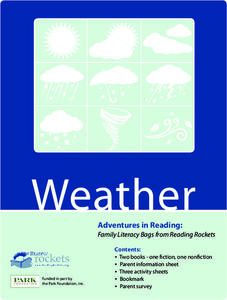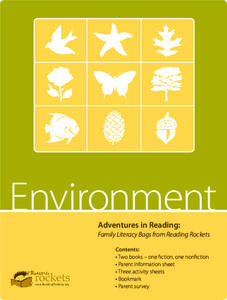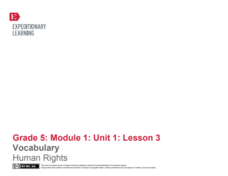Fluence Learning
Writing About Informational Text: Music and the Brain
Even if you've never picked up a musical instrument, chances are that music has directly impacted your mental and emotional development. Sixth graders engage in a reading activity in which they read two articles on the impact of music on...
K20 LEARN
Windows To The Soul: A Creative Writing Project
The eyes have it in a project that combines art with creative writing. Class members list three adjectives or characteristics of a person they admire. Then draw a picture of a pair of eyes that they feel reflects these characteristics....
Great Schools
Different Types of Writing
What type of writing is this? Learners read a brief introduction to various types of text: instructions, explanations, poems, folk tales, novels, informative, and arguments. The introduction doesn't explain these, so...
Curated OER
Check it Out...Nonfiction Can Be Fun!
Organizing information gathered for a research topic can be a challenge. Read aloud notes you have collected on a topic and use suggestions offer by the class to categorize and sort this information. Partners then follow this pattern,...
New York City Department of Education
Grade 5 Literacy: TCRWP Nonfiction Reading and Opinion/Argument Writing
Choose a side! Pupils watch and read several nonfiction resources about zoos. After gathering their research, they choose a side either for or against closing zoos. Scholars complete KWL charts, anticipation guides, flow charts, and...
Teaching Tolerance
Community Newsletter
What does it take to develop and publish a newsletter? Young academics create a newsletter with original artwork for their school or community. They explore social justice themes and spread messages of tolerance and inclusion. Scholars...
The New York Times
Writing Fiction Based on Real Science - NYTimes.com
Refuse to alienate your scientific-minded young scholars during your creative writing unit. Learners explore how literary writing can reflect observable fact, and be based in actual science. The links include examples of fiction and...
Curated OER
Traits of Nonfiction
Here are some lesson ideas for teaching students about the traits of nonfiction text.
Teaching Tolerance
Puppet Show
It's a play, it's a story, it's a puppet show! A lively resource provides academics with a creative outlet to express their views on diversity and social justice. Scholars are responsible for writing, creating, and performing a puppet...
Teaching Tolerance
Community Bulletin Board
A project-based lesson has pupils create a bulletin board to share artwork, nonfiction articles, and messages based on social justice themes. The finished board is displayed in the community to create a place for discussion.
Curated OER
Diary of a Dinosaur: Making Writing Lessons Meaningful
Writing about dinosaurs unleashed one student's desire to keep a journal, and led to an exploration of a variety of subjects.
PBS
Reading Adventure Pack: Archaeology
Readings of fiction and nonfiction texts followed by a series of activities put scholars in an archaeologist's shoes. Learners read two texts, Archaeologists Dig for Clues by Kate Duke and The Shipwrecked Sailor: An Egyptian Tale with...
Digital Writing and Research Lab's – Lesson Plans
Teaching Close Reading through Short Composition/Revision
This activity may have writers evaluate short compositions, but their subjects are quite tall: great Americans. Pupils read one another's compositions and closely examine how specific phrases and diction contribute to shaping American...
EngageNY
Reading Closely to Expand Understanding of Adaptations
Third graders work to determine the main idea, recall key details, and answer questions using an informational text on the topic of animal adaptations. Using the non-fiction text "Staying Alive: Animal Adaptations" (provided) the teacher...
EngageNY
End of Unit Assessment, Part 2: Drafting Introduction and Conclusion of an Essay to Inform
A powerful introduction and conclusion can really pack a punch. Using the resource, scholars first read and discuss a model essay. Then, as part of the end of unit assessment, they draft the introductory and concluding paragraphs of...
PBS
Reading Adventure Pack: Weather
A reading adventure pack, featuring a fiction and nonfiction book focuses on the weather. Scholars read Cloudy with a Chance of Meatballs by Judi Barrett and Seymour Simon and then complete three creative activities. Participants craft...
PBS
Reading Adventure Pack: Environment
A fiction and nonfiction text, The Great Kapok Tree: A Tale of the Amazon Rain Forest by Lynne Cherry and I See a Kookaburra! Discovering Animal Habitats Around the World by Steve Jenkins and Robin Page begins a learning experience in...
PBS
Reading Adventure Pack: Heroes
Three creative activities follow reading a fiction and nonfiction book about heroes. Scholars build hero action figures out of clay for make-believe play, explain in written form how they show bravery, kindness, patience, thoughtfulness,...
EngageNY
Using Informational Text Features and Learning Freaky Frog Vocabulary
What kind of text features help children build a strong vocabulary? Class members use text features such as headers to unpack new vocabulary words. They create vocabulary journals in which they will write what they think the definition...
EngageNY
Main Ideas in Informational Text: Analyzing a Firsthand Human Rights Account for Connections to Specific Articles of the UDHR
Lesson 10 in a series of human rights lessons focuses on the skills of finding evidence and summarizing. Your young readers work to compare the two texts they have read in this unit: the Universal Declaration of Human Rights...
EngageNY
Vocabulary: Human Rights
Your class continues to explore the history of the Universal Declaration of Human Rights. In addition to learning about the background of this text, learners work on the skill of identifying and understanding key academic vocabulary....
University of Arizona
Found News Poems
Combine informational text and creative writing with one fun activity! Middle and high schoolers write found poems based on newspaper headlines that they find. The resource includes a thorough lesson plan and many links to articles that...
Curated OER
A Pill with a View
Young scholars brainstorm a list of potential uses for micro-video technologies. After reading an article, they analyze the development of a new pill-sized camera. In groups, they create a children's book that shows them the various...
Curated OER
Blending Fiction and Nonfiction to Improve Comprehension and Writing Skills
Students explore a content area by reading both fiction and nonfiction texts on the topic. They do more research online about the topic. After comparing the texts, they create their own written original work, using both narrative and...

